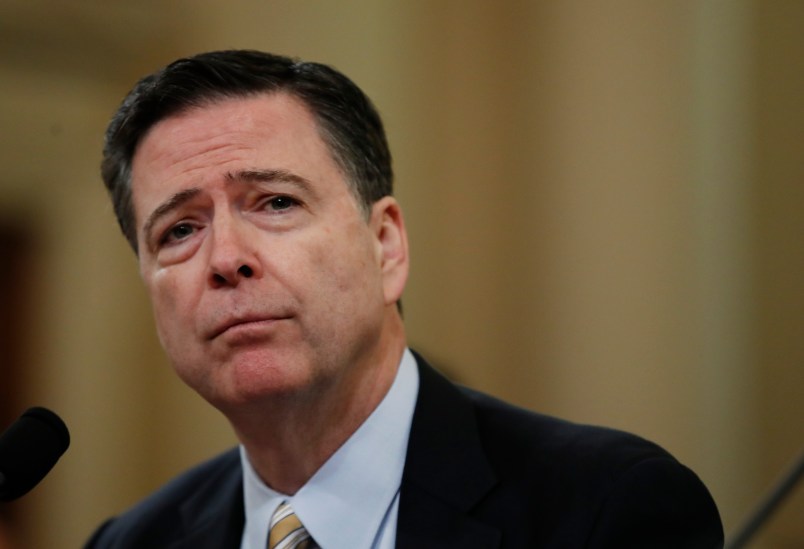Former FBI Director James Comey told Congress in early May that he felt “mildly nauseous” at the idea that he may have influenced the outcome of the U.S. election by speaking publicly about Hillary Clinton’s “carelessness” in using a private e-mail server as secretary of state.
The Washington Post on Wednesday shed more light on why he chose to make that announcement, which broke FBI protocol not to comment on closed cases where no charges are brought. Before Comey’s July announcement, the FBI obtained a Russian intelligence document of dubious origin and veracity that claimed to cite communications between then-Attorney General Loretta Lynch and Clinton’s campaign, in which Lynch assured a campaign staffer that the Justice Department would not closely investigate the email server.
The document did not include the email in question and merely described its contents. The Post reported that many people within the U.S. intelligence community believed the document either contained bad intelligence or was fake. FBI officials, who said the source who provided the document had offered up un-corroborated information in the past, called the document “junk” and “unreliable and based on multiple layers of hearsay.”
The agency tried to verify the document by searching for the compromising email in question and could not find it, according to the report. Then when the FBI interviewed Lynch to determine the validity of the document’s claims, she said she had never communicated with the Clinton staffer in question.
Still, the Post reported that the document had a major impact on Comey, who believed he needed to speak publicly about the Clinton email server case in order to get out ahead of accusations of coziness and special favors. Without giving Lynch a heads up, and in the heat of the general election, he publicly criticized Clinton’s handling of classified material over email, a decision some have argued helped Donald Trump clinch the presidency.
The New York Times reported on the existence of the document back in April, but did not characterize it as a document prepared by Russian intelligence officials and did not question its validity. Instead the Times cited: “The document, which has been described as both a memo and an email, was written by a Democratic operative who expressed confidence that Ms. Lynch would keep the Clinton investigation from going too far.”
The Times reported, as did the Washington Post, that Comey feared the document could be leaked by Wikileaks, undermining the public’s view of the Justice Department’s integrity.
Ironically, Comey was also the man who led the federal investigation into Russian efforts to sow disinformation and undermine American democracy until Trump fired him in early May.











But, of course, everyone knows Russian meddling in our election didn’t change the outcome in any way.
Because the GOP said so.
Makes me feel even better about the Putin Faction in the New York office.
#newelection.
Timing of the leak is everything. So now it is the IC’s turn to have it’s (their?) credibility questioned due to Russian havoc making. What a convenient time for Trump. It’s almost like a two-fer-one for the Russians (the doc head-fake, and now the leak revealing that at least some in the FBI - or at least Comey - fell for it the doc.)
Dizzying.
…Whoops.